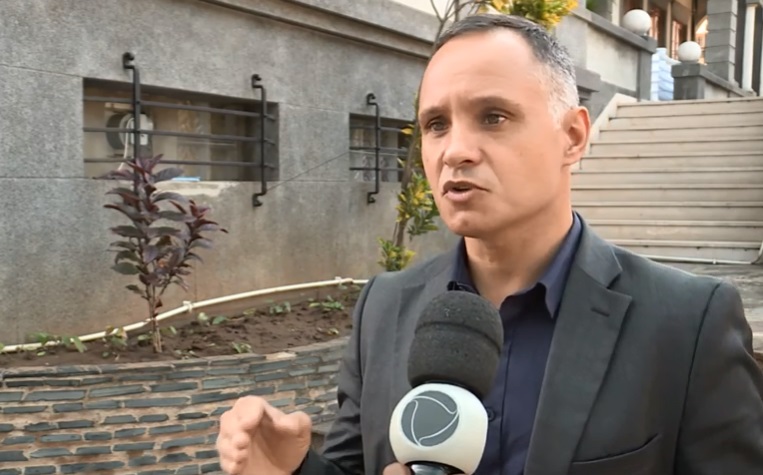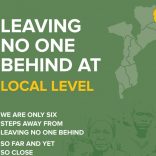Making sure crime doesn’t pay: How recovered assets from criminal activities help Mozambique to ...
Mozambique: State of emergency and the Constitution – Watch

Photo: Miramar
The state of emergency decreed by President Filipe Nyusi to combat the spread of the new coronavirus ended this Wednesday (29.07) after its third month-long renewal.
Some take a glance at the Mozambican Constitution, and claim that the head of state could no longer extend this period. However, several authorised legal experts maintain that he in deed could, explaining why, one after the other.
The President [and Parliament] could in fact extend the period of the state of emergency in the country. He could even simply declare a new state of emergency in face of the current circumstances and extend this new declaration for three consecutive tines., explains Mozambican lawyer Rodrigo Rocha in the video below.
This is due to the simple fact that the causes at the root of the state of emergency declaration keep changing, they are not fixed in time and space. In fac, new reasons to declare a Covid-19 state of emergency keep happening and re-surfacing day after day. Covid-19 is not a one-time event, as is an earthquake or a cyclone, it is an unprecedented pandemic. Pandemics can’t even be considered continued events- they change, they progress and, as is unfortunately the case with Covid-19, they clearly escalate .While conclusions are not definite and as there is definitely no “state of calamity” anywhere in the Mozambican Constitution, the country is left with a sometimes interesting debate.
“There are no limits in our Constitution as to the number os states of emergency that a President may declare. What it states is that, declaring one,, that one, that first one, has three renewals and the process of renewal should be a much more swift, a much more fluid one than the primary process of pondering which is that of the declaration (of that state of emergency),” says Rocha.
“Now, the Law says nowhere, that, at the end of that state of emergency and its renewals, the Head of State cannot declare one other state of emergency, ‘zero kilometres’, and which will have its possible three extensions,” he adds. “There is no limits to that in our Constitution.”
“We do not have the predicted state of calamity, but we do have a civil protection law for cases of catastrophes – even for cases involving health situations – which is widely used for natural disaster [calamidades] situations, in the sense of outlining measures for these specific periods,” Baltazar Fael, a lawyer at the Centre for Public Integrity, argues.
Various interpretations of the Constitution
Speculation surrounding the post state-of-emergency period has fuelled several legal debates.
Some lawyers think that the President can decree another state of emergency. The president of the Commission on Constitutional Affairs, Human Rights and Legality, António Boene, argued this Wednesday that the Constitution allows this, despite establishing, in article 284, that the measure is “extendable for equal periods up to three, if the reasons that determined its declaration persist”.
“We have to make a dispassionate interpretation of the Constitution. We have to look at the moment of application of the Constitutional norms, what is their meaning, and the scope that we have in view of these norms,” António Boene said on Radio Moçambique.
CIP lawyer Baltazar Fael also affirms that the state of emergency can be prolonged, given the pandemic situation in the country, but everything will be in the hands of Filipe Nyusi. “What is not known is whether the President will follow this route or if he will choose to declare a state of calamity. Also, the Constitution does not mention a calamity situation, and in such a case, restrictive measures must clearly be reduced.”
CIP makes negative assessment of police performance
The four-month state of emergency, Fael says, showed the Mozambican police in a bad light for violating citizens’ rights. “We must acknowledge that the population has lost respect for the police for a long time, because of the way they act.”
“This relationship was already tense; the police were already charging down on people,” Fael continues, “and, with the State of Emergency, people were more attentive to police behaviour.”
Social crisis
Psychologist Odete Abrantes understands that “it is normal for people to feel frustrated after a period of confinement. And, with the change in routine added to the economic impact, the normal reaction is one of frustration. They are left ‘powerless’, and not knowing what to do. And, in teenagers and young people, all these elements are exacerbated by the obvious hormonal changes”.
During the state of emergency, many people lost their jobs and poverty increased.
“My life has got worse. I can’t [take it anymore],” one young Mozambican woman told DW. Another interviewee recalled that employers had to reduce the number of workers “because sales are down”.
Last month, Catholic bishops warned that the Covid-19 pandemic would create a “deep social crisis” in the country, with increasing poverty, unemployment, hunger, social instability, crime, fear and loss of quality of life.












Leave a Reply
Be the First to Comment!
You must be logged in to post a comment.
You must be logged in to post a comment.